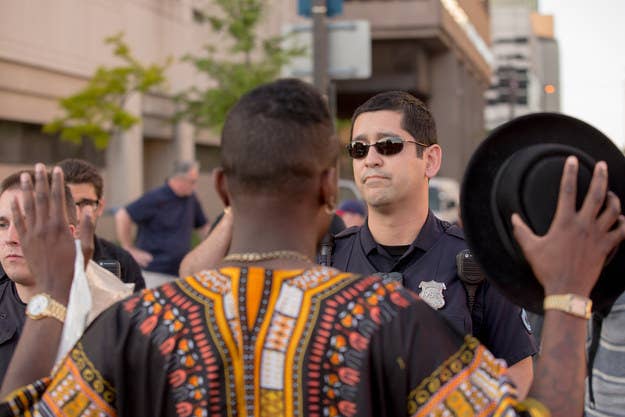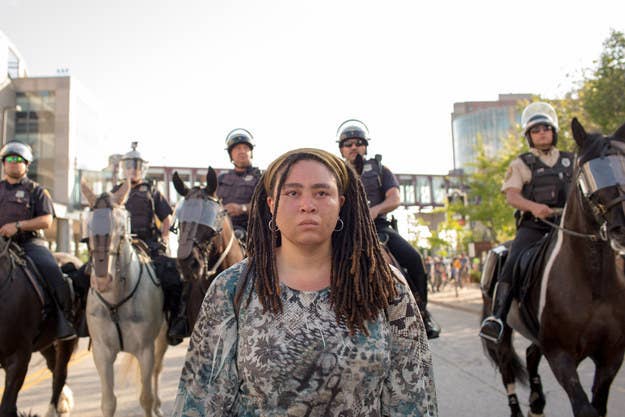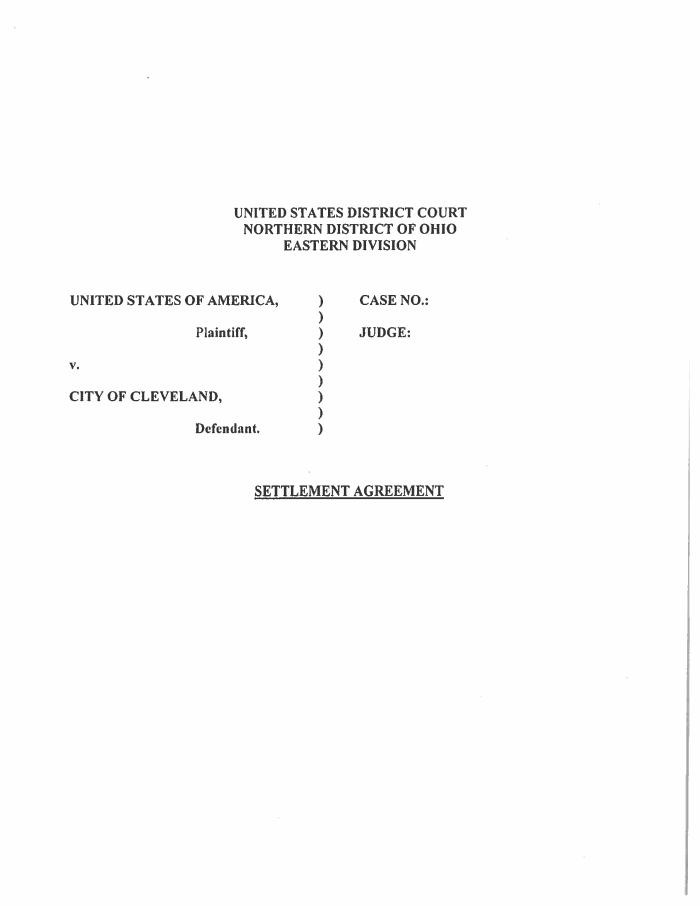
The Department of Justice and Cleveland Mayor Frank Jackson announced Tuesday the details of an agreement between the federal government and the Cleveland police over officer conduct in the troubled department.
The 105-page agreement includes provisions for greater citizen input, accountability reforms, more training, and changes to the use of force policy, officials said at a news conference Tuesday.
U.S. Attorney for the Northern District of Ohio Steven Dettelbach called the deal "a historic agreement that will transform the way Cleveland is policed for years and years to come."
"This is a defining moment for the city of Cleveland," Jackson said.
The DOJ Head of Civil Rights Division, Vanita Gupta, said to the people of Cleveland, "Ultimately, this day, and this settlement agreement, is for you."
The American Civil Liberties Union of Ohio, who advocated for many of the most aggressive reform details contained within the document, said this consent decree is only the first step.
“This is a step forward, but this is truly only the beginning,” said Christine Link, executive director of the ACLU of Ohio. “To change the culture of the police force, which has been engaged in unfair and unjust treatment of people of color for so long, will not happen overnight. It will take a strong and vibrant partnership with community members based on respect and trust, as well as the resolve of officials to not allow discrimination and unconstitutional practices fester within the Cleveland Police Department any longer."
The agreement comes after DOJ investigators published a report in December that alleged Cleveland police officers routinely used unnecessary and excessive force against suspects, violating their constitutional rights.
Beginning in March 2013, the DOJ looked at more than 600 incidents over a three-year period from 2010 to 2013. The investigation found that Cleveland police officers pistol-whipped suspects, punched juveniles, and pepper-sprayed mentally ill people.
The 2014 findings were published less than one month after the fatal shooting of 12-year-old Tamir Rice by rookie Cleveland cop Timothy Loehmann. Rice’s shooting was not included in the report.
Jackson said Tuesday that he expects a charging decision in the Tamir Rice investigation "will be coming in the near future."

The use of force reforms in the agreement focus on training officers to deescalate confrontations wherever possible. It recommends policies prohibiting police tactics such as neck holds. And it calls for a ban on use of force while a suspect is in handcuffs unless they are trying to escape or assault an officer.
According to the agreement, an officer should communicate to a suspect that the use of weapon is imminent before using force against them.
The agreement also recommends comprehensive reforms for dealing with mentally-ill subjects, such as implementing policies and procedures for calling for back-up from a Crisis Intervention Team trained officer. The agreement also calls for the creation of a special committee to annually evaluate whether or not Cleveland has enough CIT officers.
CIT training for officers will continue to be voluntary, however all Cleveland police officer will receive use of force training within the first year of the agreement.
Body worn cameras are not required under the agreement, but officers who wear them “will be subject to the disciplinary process for intentional or otherwise failure to activate the camera in violation of CDP policy.” Jackson said in a statement Tuesday that he plans to outfit every officer in a body camera.
Within 180 days of the agreement, the department will create a new recruitment and hiring plan. It also calls for the creation of several new review groups and jobs to monitor the department’s progress.
A Force Review Board will be established and will review all police use of force incidents within 90-days of submission.
In addition, a Community Police Commission, consisting of 13 members “who represent the many and diverse communities in Cleveland” will be created to work on the issue of community policing. The police union will have one seat on this committee.
The city will also hire a Police Inspector General, who is not a former CDP officer, to oversee many of the new policies.
Finally, the federal government and the City will agree on a monitor for five years. That person will file a report every six months on the department’s progress.
The agreement follows a weekend of unrest in the city after Cleveland Police Officer Michael Brelo was found not guilty of all charges on Saturday in the deaths of two unarmed suspects in a 2012 police shoot-out.
Timothy Russell and Malissa Williams died on Nov. 29, 2012, following a high-speed police chase and 137 shots fired — 49 of which came from Brelo’s gun.
Jackson commended the public for a "generally peaceful response" to the Brelo verdict.
Seventy-one people were arrested Saturday night during protests following the announcement of Brelo’s acquittal.
According to the New York Times, the DOJ has opened nearly two dozen investigations into police departments under the Obama administration.
The federal monitoring of Cleveland will be the first consent decree opened under newly appointed Attorney General Loretta Lynch. Since being appointed, Lynch opened an investigation into the Baltimore police as well.

